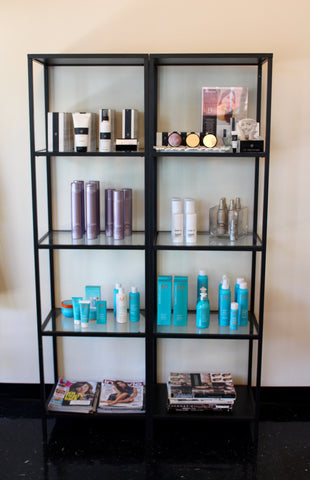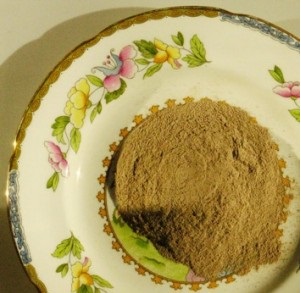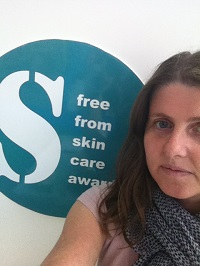TheChronicleHerald.ca |
Skincare company offers alternative to steroids for eczema
TheChronicleHerald.ca It's always great to hear about local companies growing and succeeding. Skinfix is one of those good-news stories; the company is best known for their eczema creams and has racked up loads of accolades over the last few years. They are expanding by … |



Tag Archives: Skincare
Skincare company offers alternative to steroids for eczema – TheChronicleHerald.ca
TheChronicleHerald.ca |
Skincare company offers alternative to steroids for eczema
TheChronicleHerald.ca Skinfix is one of those good-news stories; the company is best known for their eczema creams and has racked up loads of accolades over the last few years. They are expanding by leaps and bounds. Skinfix has based many of their products on the original … |
The Skincare Changes you Need to Remember in the Winter
While many of us spend our winter dreaming of a white Christmas we often forget the impact the harsh weather can have on our skin is overlooked! The main culprits to blame for this are cold, dry air, low humidity and central heating, which, although it keeps us cosy and warm, wreak havoc with our delicate skin and hair. But cold weather also hits you harder as you get older, as the production of the skin’s natural moisturisers already dips with age alone. The result: your soft, glowing summer skin becomes dry, rough and flaking, while your hair feels parched and loses its shine.
But, never fear, we are here to help! These simple cold weather beauty tricks and tips will help keep you looking and feeling your best, no matter the type of weather you have to deal with in the coming months.
Get sipping!
Just because you’re not feeling as warm, doesn’t mean you should be easing up on the amount of water you should drink per day. Consuming enough water is important all year round, including in the winter. When your internal system is operating well, it’s going to show on the outside with glowing skin. Keep up with your daily quota by drinking a glass of water with every meal and keeping a reusable bottle on your desk at work, to ensure that your skin stays clear and moisturised.
Love your lips!
Dry, sore and cracked lips are no-ones favourite winter affliction. They can leave you dreading eating or even yawning, and they look pretty unattractive too! Keep your lips moisturised regularly throughout the day by looking for a formula containing shea butter. If you’re wearing colour on your lips, moisturise your lips overnight and wear a formulation that has a built-in moisturiser.
Time to clean up!
Your usual shower gel and shampoo aren’t going to cut it in the winter, we’re afraid. In the winter, our skin and hair generally need more protection, largely in the form of hydration. Choose moisturising shower gel and a hydrating shampoo to suit your individual skin and hair type. This goes for facial cleanser and moisturiser too! You may find that a creamy, hydrating cleanser with alpha hydroxy acids, which are gentle enough to remove dead skin cells on your face without causing skin irritation, is the way forward. Your regular light moisturiser may need to be switched up for a heavier formula too; your skin will be extra thirsty. Look for preparations including beeswax, petrolatum, or squalene, and warm them up in the heat of the shower as you wash for an extra moisturising treat!
Double up on hydration
Moisturising twice a day might sound like overkill, but may be necessary in the winter! Ideally, you should moisturise in the morning and before bed for the best results. The reason: there’s a slight elevation in the temperature of your body while you sleep, so products seep in better! Why not ask for some free samples at your local beauty counter to find the perfect body moisturiser for you?
Indulge those digits!
Don’t forget about your feet and hands – they do most of the work after all, but often we find ourselves washing our hands over and over again without ever replacing that lost moisture. And our feet? Well, for many of us they don’t get a look-in when we moisturise our legs! How about dampening your hands and feet, slathering on a luxurious cream, and then putting on a pair of comfy and light gloves and socks to wear overnight? Your feet and hands will look and feel great the following morning!
Dr Seth Rankin is Founder of London Doctor Clinic
Common terms in skincare marketing: Hypoallergenic fragrance
Hypoallergenic fragrance is a term that may actually have some dermatologic relevance. Since the term literally means reduced allergy, not the absence of allergy, it can be used loosely.
Dermatology Times – Dermatology
13 Skincare Ingredients & Eczema Irritants You NEED to Avoid Right Now
Another great post from itchylittleworld.com – Natural remedies for eczema to soothe your itchy little world..
If you’re suffering from any skin condition, we’re sure you’ve tried countless treatments to provide some type of relief. However, you should know that there are many skincare ingredients that can make skin conditions like acne and rosacea even worse. And we know they are very often eczema irritants, so they are very important to highlight.
This week, we take a look at the top 13 skincare ingredients you should avoid in your daily regimen – this is most important for anyone with a skin condition, but its good advice for healthy skin too.
All skincare we recommend on this blog ALWAYS avoids the following 13 chemicals.
Please keep in mind I am in no way a medical professional. If you’re experiencing severe eczema or have a topical infection, it is always best to seek medical advice immediately.
Which Skincare Ingredients to Avoid
Triclosan
This active ingredient can be found in literally any type of anti-bacterial product such as deodorants, cleansers, and hand sanitizers. There have been studies that show that this ingredient can pass through skin and interfere with hormone function.
Not only is it practically poison for our bodies, but it’s also extremely toxic to the environment [1].
Parabens
You’ve probably heard this label thrown around a lot lately. Parabens are a class of preservatives that are included in cosmetics and pharmaceutical products. Not many people know how to recognize them in products due to the list of names they go by such as methylparaben, ethylparaben, n-propylparaben and many others that for the most part all end in “paraben.”
You can mostly find Parabens in moisturizer, lipstick, foundation, concealer, eye makeup and makeup removers.
Phthalates
Similar to parabens, there is a very long list of names these chemicals go by. Essentially they are used in plastics, but are also used in personal care products to make fragrances last longer.
Fragrance or Perfume or Parfum
Really, unless it says essential oil, you’re looking at an artificial and chemical additive. They are always seen in products that have a scent. This is a very common eczema irritant and should ALWAYS be avoided when you’re dealing with dermatitis.
Siloxanes
These silicone-based compounds are seen often in cosmetics to soften, smooth and moisten skin. They also make hair products dry quickly and deodorant creams slide on more easily. You easily find them in shampoos, and body or facial creams.
Similar to Triclosan, these compounds have been shows to be toxic for humans, as well as the environment. In fact it can possibly impair human fertility [1].
PEGS
These chemicals are actually petroleum-based and are widely used in cosmetics as thickeners, softeners and moisture-carriers. Interestingly enough, they are also used in pharmaceutical laxatives.
Although all these skincare ingredients should be avoided, it looks like PEGS are actually unsafe for damaged skin. It can actually cause irritation and systemic toxicity [2].
PEGS commonly go by the name Oxynol, Ammonium laureth sulfate, as well as all ingredients that have “eth” in the name.
Oxybenzone
This is the #1 chemical that is used in sunscreens. It actually is probably one of the most toxic ingredients in skin care products and according to The Environmental Working Group it is what skin allergies react to most [3].
To avoid this one, chose a zinc based sunblock instead of a sunscreen. Read more about that in our Summer Eczema Care Guide.
Diethanolamine, Monoethanolamine, Triethanolamine (DEAs)
Most products that are either creamy or sudsy like soaps, cleaners, and shampoos will contain these harmful ingredients.
Ever wondered how your eyes get irritated by shampoo or certain soaps, often times its due to DEAs! The European Union has actually classified DEA as harmful and can cause serious damage to one’s health from prolonged exposure [1].
P-Phenylenediamine (PPD)
This chemical is often found in hair dyes. In fact, it’s very difficult to find conventional hair dyes that don’t contain this ingredient. This chemical can cause allergic reactions to those with already sensitive skin or with skin conditions.
But how bad is it for you? Well let’s put it this way. It’s used in rubber chemicals, and textile dyes and pigments. Gross!
DMDM Formaldehyde
This ingredient is used extensively in a wide range of cosmetics such as nail polish, hair products, deodorants and so much more.
If you didn’t already know, formaldehyde is already classified as a human carcinogen that can cause cancer. And it’s an embalming fluid, need I say more?
Butylated Hydroxyanisole (BHA) and Butylated Hdroxytoluene (BHT)
These chemicals are synthetic antioxidants that are used in preservatives for lipsticks, moisturizers and many other cosmetics. They are actually used in food as well.
Similarly to other harmful ingredients listed, it mimics estrogen and creates hormonal disruptors.
Citronella
This substance is also known as methyleugenol.
Studies have shown that when this substance has been administered internally to mice, it has cause tumors to appear in multiple sites. In fact, it is so toxic, Health Canada has made sure to ban it from cosmetics.
Petrolatum
You already know what petroleum jelly is! It’s been used by many over the years as a barrier to lock in moisture, as well as added to hair products to make hair shine.
However, this substance can actually be contaminated with another chemical know as polycyclic aromatic hydrocarbons. Exposure to both these harmful chemicals combined is associated with cancer. The European Union actually classifies petrolatum as a carcinogen and restricts its use in cosmetics [1].
So…What Now?
If you’re feeling somewhat depressed after reading this article or thinking you might have to clean out your entire cosmetic cabinet, don’t fear. It’s extremely difficult to avoid all these chemicals in our daily lives, but small steps are always better than none at all!
You can start by just replacing one thing like a moisturizer. And don’t believe the hype – you can use a good natural moisturizer on every part of your body, even your face and around the eyes. A balm like Organic Manuka Skin Soothing Cream would be our suggestion for all over moisture.
If you’re ready to find a good source for non-toxic, chemical free, gentle skincare, free of eczema irritants, then we recommend The Eczema Company where you can find natural treatments for eczema as well as eczema clothing.
Do you try to avoid these skincare ingredients and eczema irritants?
How did you first learn about these chemicals?
How did you transition to all natural products?
Let us know in the comments below!
Bio: Laura Dolgy is a contributor and content developer for It’s An Itchy Little World. She is in no way a medical professional. Her comments, suggestions, and reflections are not intended to replace any medical advice. Always seek the help of a medical professional before undertaking any diet or lifestyle changes. Please see It’s An Itchy Little World’s disclaimer for information about affiliate links and more.
Sources
- European Commission. Regulation (EC) 1272/2008 , Annex VI, Table 3.2. Sep 2009. http://ecb.jrc.ec.europa.eu/classification-labelling
- Lanigan, RS (CIR Expert Panel). “Final report on the safety assessment of PPG-11 and PPG-15 stearyl ethers.” Int J Toxicol.20 Suppl 4 (2001):13-26
- The Trouble with Ingredients in Sunscreens. The Environmental Working Group. https://www.ewg.org/sunscreen/report/the-trouble-with-sunscreen-chemicals/#.WfvHVBNSxTY
13 Skincare Ingredients & Eczema Irritants You NEED to Avoid Right Now appeared first on itchylittleworld.com. Come read more about natural remedies for eczema!
Common terms in skincare marketing: Nourishing
Many facial serum formulations claim to nourish the skin; however, the term has no scientific meaning.
Dermatology Times – Dermatology
Common terms in skincare marketing: Sensitive skin
One of the most commonly used terms is “sensitive skin.” It is important for the dermatologist to understand the value of such terminology and the associated implications.
Dermatology Times – Dermatology
Skincare company supports cancer care
AB Skincare now at Troy Jensen Hair Salon
We are excited to announce that Amanda Blakley Skincare products are now available at Troy Jensen Hair Salon in Northwest Portland.

Stop by and take a look at the beautiful display and check out our products! We are so excited!

What’s the future of freefrom skincare?
Reading the Telegraph Saturday magazine this weekend I read a feature by Victoria Hall, their acting beauty director who said that, and I quote…
“Two thirds of women believe that what they eat directly impacts on how their skin looks so expect to see edible ingredients increasingly listed on your creams and serums.

Rhassoul clay – Image from Natural Spa Supplies
From superfoods such as chia, broccoli and kale to fermented supplements and even turmeric, the latest products could just as easily be found in your kitchen as the bathroom.
The bigger brands may not jump on the natural and organic bandwagon just yet, but you will see an influx of US beauty labels offering superfood serums tha are devoid of toxins – or even entirely natural.
Look out for Drunk Elephant and Farmacy, which are both coming to the UK in January.”
You can read more of her predictions for The 2017 skincare trends you need to have on your radar here.
One of my favourite finds over the years include 100% organic coconut oil, tea tree oil, aloe vera, shea butter and rhassoul clay. All incredibly versatile, flexible and great for my skin in so many different ways.
So great news for the UK’s natural skincare movemment. It’s something we’ve seen in the UK for some years already from independent and organic skincare companies who have been making delicious, natural skincare and cosmetics ahead of the trend.
Natural and organic doesn’t necessarily mean it will be suitable for all skin types because even some natural essential oils and ingredients can be irritants for some. However, having companies who are looking at the ingredients in their products to avoid including unnatural, harsh and even sometimes harmful things can only be a good thing.

Free From Skincare Awards
One of my favourite jobs is helping on the judging panel for the FreeFrom Skincare awards every year. Having what is called ‘problem skin’ I get invited along to review all the entrants in that category, as well as other categories.
I have discovered some amazing new products such as Organic Babies, NAT Origin and Pure Potions to name just a few… so this can only be good news for 2017.
One of my real bugbears and struggles is finding good, natural shampoo that doesn’t make my scalp dry, itchy and sore.
Rhassoul clay, pictured above, is a fantastic natural alternative DIY shampoo. Mix the clay to a paste with water, massage into the scalp and along the hair shaft and rince with vinegar and water conditioner. Find out more in a previous blog, Pros and Cons of rhassoul clay shampoo.
One of my next blogs will be all about the search for a natural, organic commercial shampoo that is good for sensitive scalps, because I rarely give myself the time to make fresh rhassoul clay shampoo. Stay tuned…
